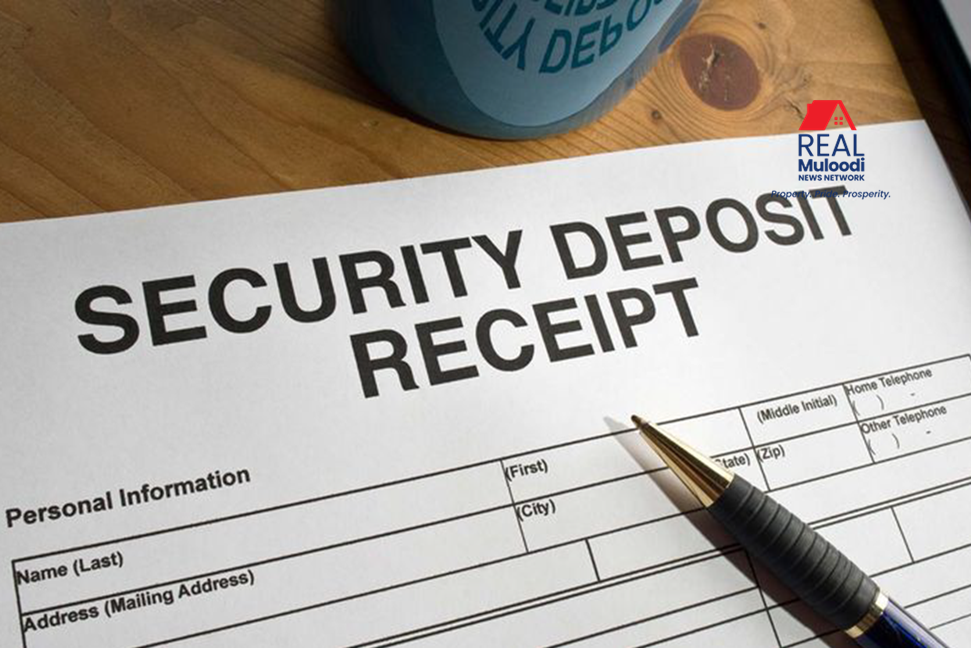UGANDA, Kampala | Real Muloodi News | If you’re a landlord renting out a property, you may consider collecting a security deposit to protect yourself in case a tenant damages the property or fails to pay rent.
A security deposit is a fixed amount of money that a tenant gives to a landlord or property manager upon moving into a rental property.
In this comprehensive guide, we’ll delve into what a security deposit is, how to determine the appropriate amount, and what reasons landlords can withhold it.
What is a Security Deposit?
A security deposit, also known as a “damage deposit,” is a refundable deposit that can be returned to the tenant shortly after the lease agreement ends.
It serves as insurance against the tenant’s failure to care for the rental property or pay rent. The property owner is obliged to handle the deposit following applicable regulations and refund the balance, less any lawful deductions, after the tenant vacates the property.
How Much a Tenant Should Deposit
Typically, a security deposit is worth around a month’s rent.
However, there are factors landlords should consider when determining the appropriate amount, such as the size of the rent payment, the results of tenant screening, and the amenities provided.
A higher deposit may be warranted for tenants with a history of evictions or low credit scores, or if the rental unit is furnished or includes other special amenities.
Determining Whether to Return a Tenant’s Deposit
The following are the most common reasons why landlords withhold a deposit:
Property Damage: If the tenant causes damage to the property, such as holes in walls, broken appliances, or stains on the carpet, the landlord may withhold a portion of the security deposit to cover the repair costs.
However, normal wear and tear to the rental unit are not sufficient to cause for holding back a deposit.
Cleaning Costs: While some amount of cleaning is expected when turning over a property, landlords can withhold a portion of the deposit as a cleaning fee if the tenant leaves behind an excessive mess or personal items.
Nonpayment of Rent: Landlords are allowed to withhold a tenant’s security deposit to make up for any unpaid rent.
Unpaid Bills: If the tenant leaves behind any unpaid bills, landlords can withhold a portion of the deposit to cover the outstanding costs.
Broken Lease: In some cases, landlords can keep the security deposit if the tenant breaks the lease agreement.
The Importance of Documenting the Security Deposit
It’s essential to document the terms and conditions of the deposit in the rental agreement. Landlords should clearly state the amount of the deposit, any applicable fees, and the circumstances under which the deposit can be withheld.
It’s also important to document the condition of the rental property before the tenant moves in and after they move out to determine any damages that may have occurred during the tenancy.
By understanding what a security deposit is, determining the appropriate amount, and documenting the deposit terms in the rental agreement, landlords can protect themselves against potential losses and ensure a smooth transition at the end of a tenancy.
READ MORE LIKE THIS:



